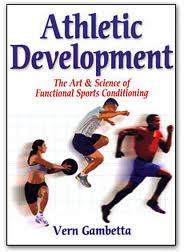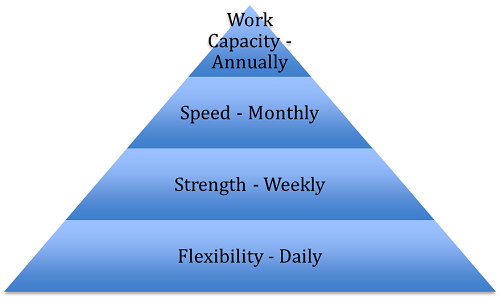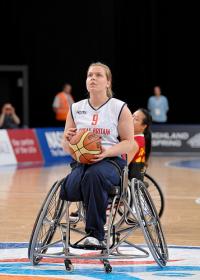Main Menu
Latest Blog Entry
User login
Athletic Development Seminar with Vern Gambetta
Head Spinning
I had the fortune to spend a weekend in Leeds with Vern Gambetta listening to him talking about athletic development with young athletes. Vern has over 40 years experience in the profession with plenty of anecdotes from these years, he is extremely enthusiastic, which enables him to inspire coaches and athletes alike.
 The topics of his presentations linked with many of the chapters in his book, a must read for any aspiring coach.
The topics of his presentations linked with many of the chapters in his book, a must read for any aspiring coach.
I came away from the weekend with my head spinning with information and a full notebook, which is going to take me a while to reflect on.
Here are some stand out points from the weekend.
Keep competence development one step ahead of skill development.
Young athletes need to follow a physical development pathway; LTAD (long term athletic development) is being used by many governing bodies, despite some arguments against the windows of adaptation.
No matter what pathway they take the athlete always needs to be able to perform the skills; which comes from a having a sounds competence level.
How running affects muscles.
When we did the practical running sessions Vern explained that running backwards with extending your legs back helps to improve calf flexibility, something most young athletes need, it does not work hamstrings though.
He also uses curved runs to improve hamstrings. An example with groups is snake runs where they follow the athlete in front running and changing directions like a snakes body.
Maintenance = slow leak.
One of the topics we talked about was in season training. He describes a common training term of maintenance as a slow leak: over this phase the athletes will slowly lose any adaptations they have made. This needs to be carefully monitored and programmed otherwise you could start every season from the same point.
Once injured an athlete is always in rehab.
Once an athlete has had a serious injury and been through a rehab process you must always treat them as if they are in rehab. Re-occurrence or compensatory injuries can always occur.
Adaptation/ detraining times
A schematic on the time it takes to adapt to training.

I have already started to use some of the practical exercises Vern showed with my athletes and re-read the notes once but I will need to read them again and look through the slides.
Duncan Buckmaster
For more reading on this see the extensive reviews of GAIN here
Client Testimonials
 Judith Hamer – GB Wheelchair Basketball, Paralympian
Judith Hamer – GB Wheelchair Basketball, Paralympian
I have worked with James for three years now. James's attitude to training has changed my approach to my training session and sport making me more focussed and organised to get as much as I can out of each session. The improvements I have made with my fitness, core and my psychological approach to training have been largely down to my sessions with James
More

